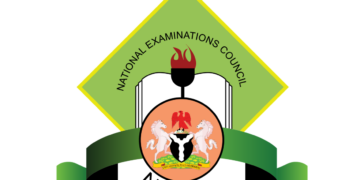When one reads Rising and Slice, the first two poems in Emman Usman Shehu’s The River Never Returns, the impression is that the author is taking one on a study of the mechanics of poetry. Comparing poetry to a building or several transportation systems – like a ship, limousine, spaceship, a train, a plane, or anything it wants to be – that takes one’s imagination on a free ride across the globe and beyond the skies; and like anything worth effort requires suffering. But then, it turned into an imagery description of the days of the week with Headlong, Something Familiar, Keeper of Boundaries, Foreteller, No Grudge, Whirl and Finale. Then it zips into Cityscape a figurative representation of Nigeria’s 36 states, and then the age-old challenges of being a single woman over a certain age in A Month In The Song, and gender-based violence in Nudge. It was quite a see-sawing movement from personal to societal and global issues.
Despite the unstructured arrangement of the collection, the poems are witty, metaphorical, and insightful. Likely favourites for readers include Doubly Empty, Fishbone, Apocalypse, Images, Migration, Sarah, and Sunday Flight.
In Doubly Empty, the poet highlights the plight of widows displaced and disinherited by their in-laws, in the aftermath of being blamed for their husbands’ death. While there is not a single female coiffure named Fishbone, the poem evokes images of hair salon and hair weaving market, where oiled scalps and coily hair, twined, stretched and braided in stylish rows and patterns stretch out face-lines, turning into the females crowning glory. Apocalypse announces impending disaster of climactic proportions – deforestation, desertification, climate, flooding, global warming, and pollution. With Images, the poet draws attention to modern societies’ obsession with capturing images on camera rather than prevent the ugly events unfolding before the camera. Migration is a double entendre, referencing birds’ seasonal migration and human illegal migration, both undertaken for survival purposes.
Still on the issues of forced migration, Usman addresses the horrors of transatlantic trade with the tale of Saatje ‘Hottentot Venus Show’, the south African female slave caged and displayed at freak shows in the UK, France and Europe in Sarah; and highlights in Sunday Flight a poetic tribute, to the literary critic and author, Pius Adesanmi, a chronological narration of events in six stanzoes prior to tragic event that cut shut his life and others.
Shehu writes in metaphorical, simple yet not simplistic diction that may require a little bit of concentration and re-reading to catch-on but worth the read. Expert application of rhyming, enjambment, personification, irony lend richness and artistry to the poetry.
The River Never Returns is a delightful and brainteasing read for both lovers of poetry and social consciousness devoid of aggressive confrontation.










